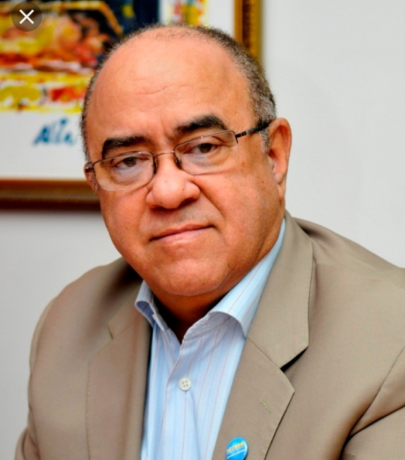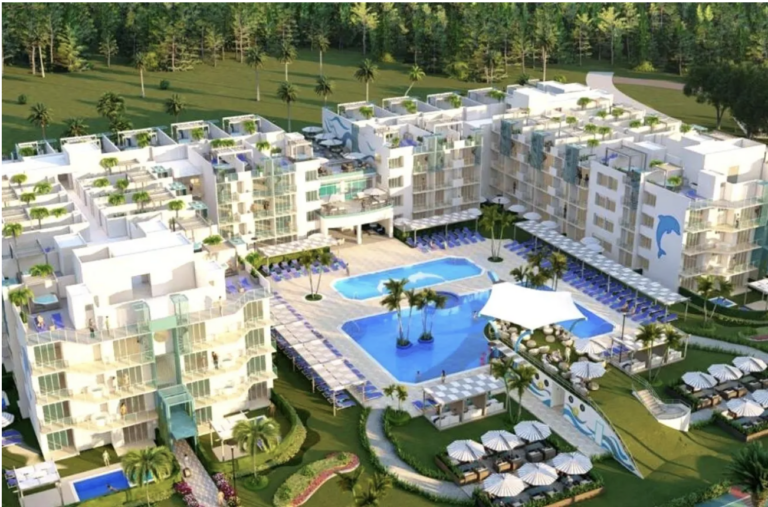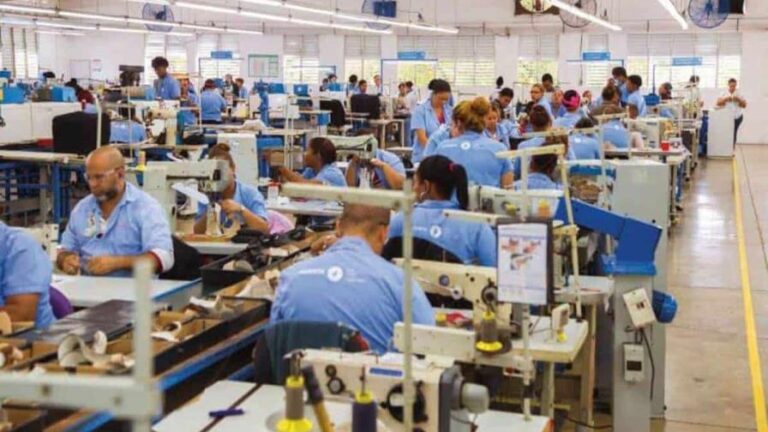La búsqueda de gas natural en la cuenca marina de San Pedro de Macorís conllevaría un período inicial de cuatro años y una inversión de 85 millones de dólares para investigación y perforaciones exploratorias.
Y aunque las autoridades del Ministerio de Energía y Minas son cuidadosas de no tratar de generar falsas expectativas, destacan como positivo el hecho de una inversión tan cuantiosa asumida por la empresa Apache, ganadora de la subasta la pasada semana.
Como ventajas del contrato citan que el Estado dominicano no recibirá menos del 40% de los beneficios, que será dueño de las infraestructuras y que podrá recibir pagos en especies.
Así lo detallaron el ministro de Energía y Minas, Antonio Isa Conde, junto a los viceministros de Hidrocarburos, Alberto Reyes, y de Energía, Ernesto Vilalta, durante su participación en el Almuerzo del Grupo de Comunicaciones Corripio, junto a Víctor Bautista, director de Comunicaciones.
Isa Conde aseguró que Apache ofreció más de los compromisos que demandaba el contrato, como por ejemplo, una inversión primaria en investigación de cinco millones de dólares en vez de cuatro millones.
Detalló que para comenzar a perforar entre 800 a 1,400 metros de profundidad la empresa tiene que por lo menos invertir 80 millones de dólares y luego 500,000 dólares diarios en el proceso de explotación.
“Cuando una empresa de esta naturaleza se embarca en una inversión que comienza en cinco millones de dólares y que si da resultados las investigaciones, significa que si se entiende conforme de la información se deciden a perforar desde 800 a 1,400 metros de profundidad, eso implica una serie de procesos”, dijo.
Aclaró que la idea no es crear falsas expectativas, pero hay que estar consciente que hay petróleo y gas en el país. “Una cosa es que haya un sistema de hidrocarburos en el país y otra es que sea comercialmente explotable”, apuntó el ministro.
Mayor importador. Reyes afirmó que la República Dominicana es el país mayor importador de gas natural del Caribe con 50 trillones de BTU al año.
Afirmó que este consumo será duplicado en los próximos años, sobre todo a partir de la instalación del gaseoducto para la generación de cerca de un giga de energía, y el cual se construye desde Punta Caucedo, en Boca Chica, hasta San Pedro de Macorís. “Vamos a más que duplicar ese consumo en el país que sigue aportando al desarrollo y a ser más sostenible en materia energética con base a gas natural y por eso es importante el hecho de que el país pueda convertirse a futuro en productor.
Sin embargo confía en que el país pueda convertirse en exportador.
En cuanto a la ruta crítica para lograr ese cambio, Reyes explicó que el plazo de cuatro años para evaluaciones y levantamiento de datos geofísicos necesarios, podría ser ampliado a seis u ocho años por razones técnicas.
Luego de vencido ese tiempo, dijo, hay que proceder a la perforación exploratoria, para cuando se podría ya tener una idea comercial.
Asimismo afirmó que el contrato bajo el cual operaría es con un esquema fiscal de regalía e impuestos, que “no negociamos con nadie” y garantiza un 40% de beneficios al Estado, nunca menos.
“No es un simple contrato de concesión donde la empresa está autorizada y puede sacar lo que quiera de ahí y me paga los impuestos”, expresó Reyes.
Destacó que se trata de un instrumento competitivo, en cuyo diseño el Estado se asesoró de expertos en la materia a nivel internacional.
Futuro. En tanto que el ministro Isa Conde aseguró que la explotación del gas natural podrá transformar el PIB y la vida de los dominicanos, al destacar que todos los indicadores auguran posibilidades de éxito en la búsqueda de ese recurso no renovable.
Pidió a la sociedad empoderarse de este proceso, el cual aseguró que el ministerio lo realiza con transparencia.
Asimismo reiteró que la sostenibilidad no solo debe ser ambiental, sino en términos social y económico. Insistió en que no basta con crear riquezas y crecer económicamente, si no hay desarrollo humano. “No basta crear riqueza, no basta crecer porque el desarrollo es algo más que crecimiento porque implica el ser humano y su presente y futuro”.
Fideicomiso
El ministro de Energía y Minas reveló que se ha diseñado un anteproyecto de ley para la creación del ” Sistema de gestión de la renta minera” con el cual se busca resguardar los fondos mineros para que vayan a obras que contribuyan al desarrollo de las comunidades.
Antonio Isa Conde detalló que se busca que esos recursos no sean usados de forma antojadiza por los gobiernos. Dijo que básicamente el sistema tendrá como función manejar la propuestas de desarrollo de forma conjunta entre las comunidades y los cabildos y tener un fondo de reservas para cuando bajen los precios de los recursos mineros. El anteproyecto está en el Poder Ejecutivo.
En gas y petróleo se inició desde cero
Isa Conde destacó que en materia de hidrocarburos, iniciaron a partir de cero y se logró recuperar informaciones desde el siglo pasado y que el gobierno no tenía, sobre 21,500 kilómetros de líneas símismicas.
Indicó que con esas informaciones se logró determinar que el país cuenta con un sistema de petróleo y gas distribuido en siete grandes bloques.
Detalló que lo primero era crear una base legal y luego un modelo financiero para los contratos que se firmarían, los cuales no se harán de grado a grado, sino mediante modelo de subasta. Indicó que se trata de “contratos especiales” que deberán ser aprobados por el Congreso.
La pasada semana fue adjudicada la subasta a la empresa Apache Corporation, una compañía de exploración y producción de petróleo y gas con operaciones en los Estados Unidos, Egipto y el Reino Unido, que en el tercer trimestre de 2019 reportó una producción diaria de 451,000 barriles de petróleo.
Informó que la próxima ronda de subasta se hará en el primer trimestre del 2020.
Source: Hoy[:en]
The search for natural gas in the marine basin of San Pedro de Macorís would entail an initial period of four years and an investment of 85 million dollars for research and exploratory drilling.
And although the Ministry of Energy and Mines authorities are careful not to try and generate false expectations, they highlight as positive the fact of such a large investment being undertaken by last week´s public bid winner, the Apache company.
The advantages of the contract include the fact that the Dominican State will receive at least 40% of the profits, that it will own the infrastructure and that it may receive payments in kind.
These details were divulged by the Minister of Energy and Mines, Antonio Isa Conde, along with the Vice Ministers of Hydrocarbons, Alberto Reyes, and Energy, Ernesto Vilalta, while taking part at the Corripio Communications Group Luncheon, along with Victor Bautista, director of Communications.
Isa Conde said that Apache offered more of the commitments demanded by the contract, such as a primary research investment of five million dollars instead of four million.
He explained that to start drilling between 800 and 1,400 meters deep, the company has to invest at least 80 million dollars and then 500,000 dollars a day in the exploitation process.
“When a company of this nature embarks on an investment that starts at five million dollars and that if the results are successful, in other words based on the data they decide to drill between 800 and 1,400 meters deep, that implies a series of processes,” he said.
He clarified that the idea is not to create false expectations, but to be aware that there is oil and gas in the country. «One thing is that there is a hydrocarbon system in the country, another thing is that it is commercially exploitable,» said the minister.
Largest importer. Reyes said the Dominican Republic is the largest importer of natural gas in the Caribbean with 50 trillion BTU per year.
He said that this consumption will be doubled in the coming years, especially after the installation of the gas pipeline to generate about one giga of energy to be built from Punta Caucedo, in Boca Chica, to San Pedro de Macorís. “We are going to more than double that consumption in the country that continues to help development and to be more sustainable in terms of energy based on natural gas and that is why it is important that the country can become a producer in the future. However, he hopes that the country can become an exporter.
Regarding the critical route to achieve this change, Reyes explained that the four-year period to assess and collect the necessary geophysical data could be extended to six or eight years for technical reasons.
After that, he said, we must proceed to exploratory drilling, by which time we should already have a commercial idea.
He also affirmed that the contract would operate under a tax and royalty scheme, which «we do not negotiate with anyone» and guarantees 40% of profits to the State, at the least.
«It is not a simple concession contract where the company is authorized and can get whatever it wants from there and pay me taxes,» Reyes said.
He stressed that it is a competitive instrument designed by the State with advice from experts in the field at international levels.
Future. While Minister Isa Conde said that the exploitation of natural gas can transform the GDP and life of the Dominicans, noting that all indicators foresee good chances of success in the search for this non-renewable resource.
He asked society to take stock of this process, which the ministry assured will be carried out with transparency.
He also reiterated that sustainability should not only be environmental, but also in social and economic terms
He insisted that it is not enough to create wealth and grow economically if there is no human development. «It is not enough to create wealth, it is not enough to grow, because development is more than growth as it involves the human being and his present and future.»
Escrow
The Minister of Energy and Mines revealed that a draft law has been designed to create the “Mining Revenue Management System” aimed at protecting the mining funds so that they are channeled into works that help the development of the communities.
Antonio Isa Conde explained that the intention is not for governments to use these resources haphazardly. He said that basically the system will serve to manage development proposals jointly between the communities and the town councils and have a reserve fund for when the prices of mining resources fall. The bill is already before the Executive Branch.
Gas and oil started from scratch
Isa Conde stressed that they started from scratch in the matter of hydrocarbons and information was recovered from the last century that the government did not have regarding 21,500 kilometers of seismic lines.
He indicated that this information made it possible to determine that the country has an oil and gas system distributed in seven large blocks.
He explained that the first thing was to create a legal basis and then a financial model for the contracts that would be signed, which will not be done bit by bit, but through a public bid model. He indicated that these are “special contracts” that must be approved by Congress
Last week the bid was awarded to Apache Corporation, an oil and gas exploration and production company with operations in the United States, Egypt and the United Kingdom, which in the third quarter of 2019 reported a daily production of 451,000 barrels of oil
He informed that the next public bid will be held in the first quarter of 2020.
Source: Hoy[:]






